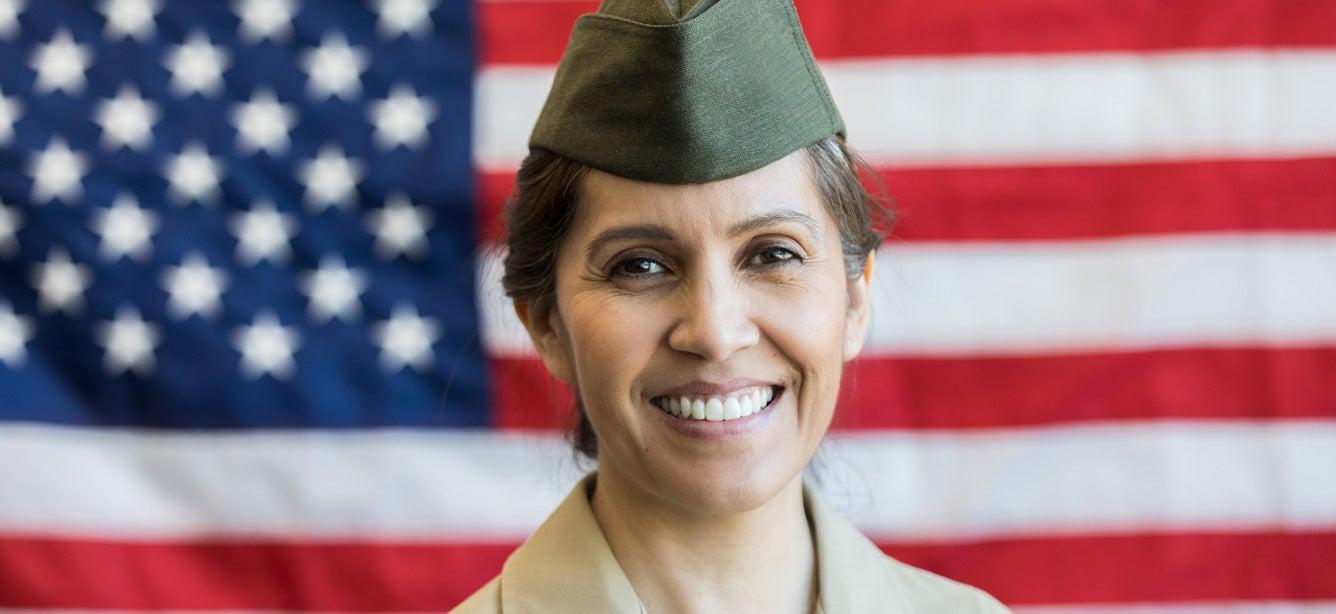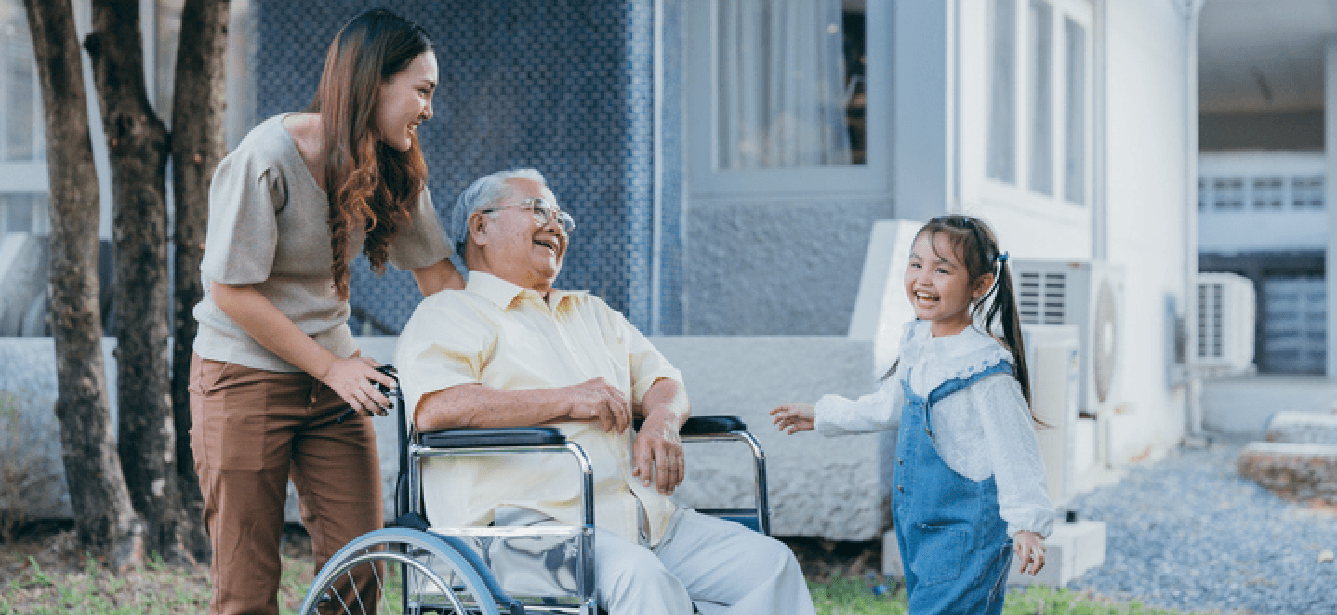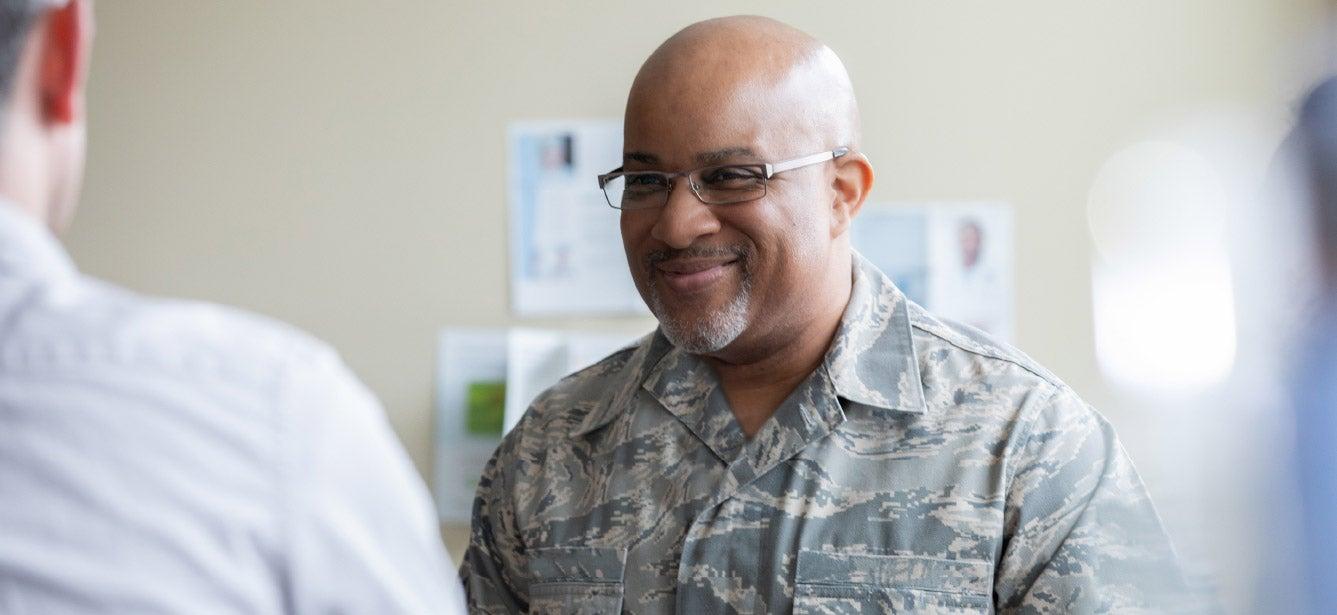
The U.S. Department of Veterans Affairs (VA), offers so many types of benefits that it can be overwhelming for veterans, their caregivers, and people like you trying to understand benefits and eligibility.
Veterans benefits range from healthcare to home and community-based services, caregiver support, service-connected disability monthly payments, and grants for home modifications, just to name a few. Once a veteran is enrolled in VA health care there are no insurance premiums and low to no co-pays for visits.
There are many resources and local VA partners that can help you navigate the VA benefits process. You can call the VA benefits hotline at 800-827-1000, apply online, or work directly with a VA accredited representative such as a Veteran Service Officerfor help.
How do state Veterans Affairs offices help older veterans?
State Veterans Affairs offices improve the quality of life for veterans, military, and their families by spreading awareness about, and access to, federal, state, and local VA benefits. Each state is unique yet united by a common goal to make a difference in the lives of our veterans. State offices employ Veterans Service Officers on the state and/or county level.
What is a Veterans Service Officer?
A Veterans Service Officer is accredited by the U.S. Department of Veterans Affairs to submit applications and claims for veterans.2 They specialize in federal and state VA benefits and apply that knowledge to the needs of every veteran, dependent, and survivor in obtaining state and federal benefits that they qualify for. Locate your state Veterans Affairs office to find an officer or search for the closest Veterans Service Organization, such as an American Legion, to find one near you.
What does VA health care cover?
Veterans Health Administration health care benefits cover many services, including:
- Preventive care
- Inpatient care
- Ancillary services
- Specialty care
- Medical prescriptions
- Mental health services
Becoming enrolled in VA health care can open the door for additional services and benefits, such as:
- The Community Care Program can help veterans receive healthcare services in their community, as an option to bypass waiting for appointments with the VA or traveling a long distance to get to a VA facility. Pre-approval is required for this program.
- Home and Community Based Services include a wide variety of services that VA physicians can refer veterans to, such as adult day health centers, home-based primary care, telehealth, hospica care, and respite care for caregivers. Veterans must be enrolled in VA health care and discuss their needs with their primary care physician.5
- Community Living Centers, also konwn as VA Nursing Homes, are facilities that provide services such as rehabilitation and skilled nursing, long-term care, residential care, dementia care, and hospice care.6
- State Veterans Homes provide adult day center or nursing home care to veterans and, in some cases, non-veteran spouses and gold star parents whose child died during military service.7
How do you apply for VA health care?
First, check out the VA’s eligibility guidelines and a list of important information you will need for an application, such as your military discharge paperwork. Once you’ve met the eligibility guidelines and have necessary documents, you can apply three ways:8
- On the phone at 877-222-8387
- Online using the VA website
- In person at a VA Medical Center near you
You can also get help from an accredited Veteran Service Officer from your state’s veterans affairs office or local veterans organization such as Veterans of Foreign Wars.
How does the Veterans Benefits Administration help older veterans?
The Veterans Benefits Administration (VBA) administers and runs many federally authorized services for eligible veterans, survivors, and dependents. VBA is housed in the Regional Offices, often referred to as the “RO,” across the county.
Applying for these benefits require multiple documents and sometimes medical records. A Veterans Service Officer (VSO) can help ease a veteran's frustrations when applying.
Federally authorized services available for veterans, survivors, and dependents include:9
- Service Connection Disability Compensation—a tax-free monetary benefit paid monthly to veterans with disabilities resulting from a disease or injury that happened or worsened during active military service. Money may also be paid for post-service disabilities that are considered related or secondary to disabilities that occurred in service and for disabilities likely related to military service, even if they appear after service. Receiving a service connection disability rating (0-100%) is also a path to VA health care enrollment.
- Dependency and Indemnity Compensation (DIC)—a tax-free monetary benefit usually paid to a surviving spouse, child, or parent of service members who died while on active duty, active duty for training, or inactive duty training. It is also available to survivors of veterans who died from their service-connected illness/disease. An application is required including a death certificate with a cause of death related to the service connection health issue.
- VA Specially Adapted Housing (SAH) program offers grants to service members and Veterans with certain severe service-connected disabilities. The grants assist with building, remodeling, or purchasing an adapted home.10
Veterans may get injured while serving or are exposed to situations that later cause an illness after their military service. A simple example is hearing loss due to loud noise exposure which may present later in a veteran's life. Many veterans do not know that hearing loss and tinnitus may be service connected to their military service.
Other VBA benefits include:
- Pension and Fiduciary: Helps wartime Veterans with supplemental income and protection of benefits for vulnerable beneficiaries
- Insurance: Maintains life insurance programs for financial security
- Education: Benefits such as tuition and training for eligible veterans, active duty, National Guard, Reserve Service members, and dependents
- Other: Benefits assistance service, loan guaranty service, job training, and more
Sources
1. U.S. Department of Veterans Affairs. Frequently Asked Questions: Information About VA Health Care and The Affordable Care Act. Found on the Internet at https://www.va.gov/health/docs/ACA_FAQ.pdf
2. Military.com. Veteran Service Officers. July 29, 2022. Found on the Internet at https://www.military.com/benefits/veteran-benefits/veteran-service-officers.html
3. U.S. Department of Veterans Affairs. About VA health benefits. Found on the Internet at https://www.va.gov/health-care/about-va-health-benefits/
4. U.S. Department of Veterans Affairs. Community Care. Found on the Internet at https://www.va.gov/COMMUNITYCARE/
5. U.S Department of Veterans Affairs. Home and Community Based Services. Found on the Internet at https://www.va.gov/GERIATRICS/pages/Home_and_Community_Based_Services.asp?utm_source=geriatrics_home_page
6. U.S. Department of Veterans Affairs. Community Living Centers (VA Nursing Homes). Found on the Internet at https://www.va.gov/GERIATRICS/pages/VA_Community_Living_Centers.asp
7. U.S. Department of Veterans Affairs. State Veterans Homes. Found on the Internet at https://www.va.gov/geriatrics/pages/State_Veterans_Homes.asp
8. U.S. Department of Veterans Affairs. How to apply for VA health care. Found on the Internet at https://www.va.gov/health-care/how-to-apply/
9. U.S. Department of Veterans Affairs. Compensation. Found on the Internet at https://www.benefits.va.gov/COMPENSATION/types-compensation.asp
10. U.S. Department of Veterans Affairs. How to apply for an adapted housing grant. Found on the Internet at https://www.va.gov/housing-assistance/disability-housing-grants/how-to-apply/


